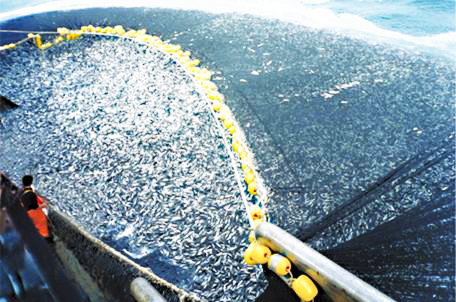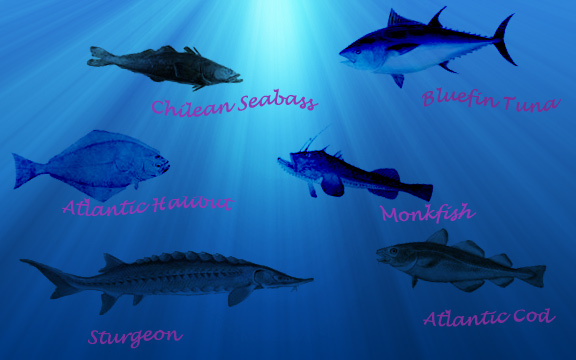Fishing the oceans dry
Scientists are predicting that by mid-century (say, 2050-ish) there will be a global collapse of all the fish species we currently fish. Yep, all of them. That means tuna, salmon, halibut, and even those salty little anchovies some of us love on pizza. How is it possible that a resource as vast as the ocean could be getting used up?
 I know what you’re thinking, “But we’ve been fishing happily, sustainably, for thousands of years. Why the problem now?” That's true, but early technology like boats and nets allowed for only small catches of fish and the ocean’s supply appeared infinite. There seemed to be no reason to set limits on how or where people could fish. In other words, the "infinite" fish in the ocean were seen as a "common" resource -- one that anyone could use freely.
I know what you’re thinking, “But we’ve been fishing happily, sustainably, for thousands of years. Why the problem now?” That's true, but early technology like boats and nets allowed for only small catches of fish and the ocean’s supply appeared infinite. There seemed to be no reason to set limits on how or where people could fish. In other words, the "infinite" fish in the ocean were seen as a "common" resource -- one that anyone could use freely.
Of course, it is in every fishing boat's interest to catch more fish -- and this wasn't a problem until human population and technology really took off. Today, long-line fishing vessels bait 2,500 hooks at a time, and purse seiners the size of city blocks haul up schooling fish.
[The] commons, if justifiable at all, is justifiable only under conditions of low-population density. As the human population has increased, the commons has had to be abandoned in one aspect after another.
So, with modern technology, the oceans as a common lead to the tragedy of destroying the ocean's food web. And yet any individual vessel that takes less than it could is only hurting itself -- others will snap up what remains, and the oceans will not be better off.
We are now harvesting the last 10% of these, and many other species:

Copyright University of Maryland, 2007
You may link to this site for educational purposes.
Please do not copy without permission
requests/questions/feedback email: mathbench@umd.edu